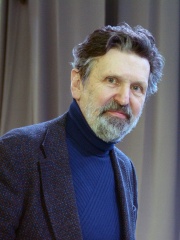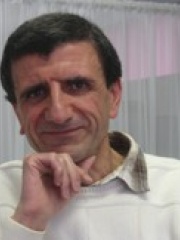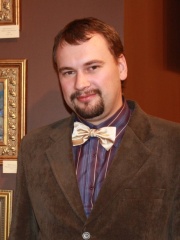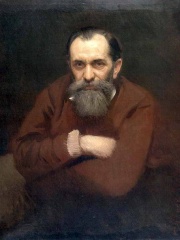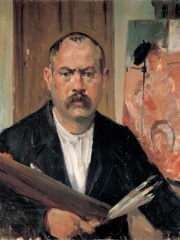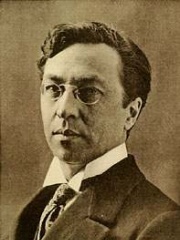
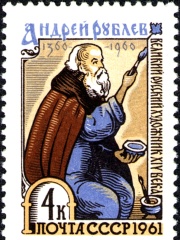
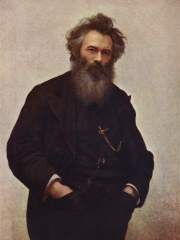
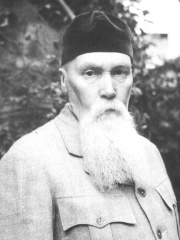
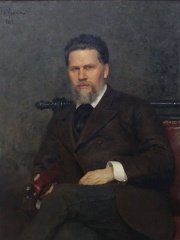
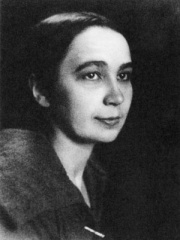
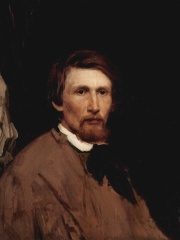
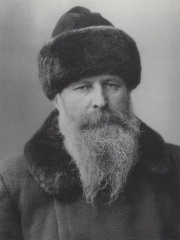
The Most Famous
PAINTERS from Russia
This page contains a list of the greatest Russian Painters. The pantheon dataset contains 2,023 Painters, 88 of which were born in Russia. This makes Russia the birth place of the 8th most number of Painters behind United Kingdom, and Belgium.
Top 10
The following people are considered by Pantheon to be the top 10 most legendary Russian Painters of all time. This list of famous Russian Painters is sorted by HPI (Historical Popularity Index), a metric that aggregates information on a biography's online popularity. Visit the rankings page to view the entire list of Russian Painters.

1. Wassily Kandinsky (1866 - 1944)
With an HPI of 84.16, Wassily Kandinsky is the most famous Russian Painter. His biography has been translated into 84 different languages on wikipedia.
Wassily Wassilyevich Kandinsky (16 December [O.S. 4 December] 1866 – 13 December 1944) was a Russian painter and art theorist active in Germany during the late Belle Époque and Interwar eras. Kandinsky is generally credited as one of the pioneers of abstraction in Western art. Born in Moscow, he began painting studies (life-drawing, sketching and anatomy) at the age of 30. In 1896, Kandinsky settled in Munich, studying first at Anton Ažbe's private school and then at the Academy of Fine Arts. During this time, he was first the teacher and then the partner of German artist Gabriele Münter. He returned to Moscow in 1914 after the outbreak of World War I. Following the Russian Revolution, Kandinsky "became an insider in the cultural administration of Anatoly Lunacharsky" and helped establish the Museum of the Culture of Painting. However, by then, "his spiritual outlook... was foreign to the argumentative materialism of Soviet society" and opportunities beckoned in Germany, to which he returned in 1920. There, he taught at the Bauhaus school of art and architecture from 1922 until the Nazis closed it in 1933. He then moved to France, where he lived for the rest of his life, becoming a French citizen in 1939 and producing some of his most prominent art. He died in Neuilly-sur-Seine in 1944.

2. Andrei Rublev (1360 - 1428)
With an HPI of 76.37, Andrei Rublev is the 2nd most famous Russian Painter. His biography has been translated into 67 different languages.
Andrei Rublev (Russian: Андрей Рублёв, romanized: Andrey Rublyov, IPA: [ɐnˈdrʲej rʊˈblʲɵf] ; c. 1360 – c. 1430) was a Russian artist considered to be one of the greatest medieval Russian painters of Orthodox Christian icons and frescoes. He is revered as a saint in the Eastern Orthodox Church, and his feast day is 29 January.

3. Ivan Shishkin (1832 - 1898)
With an HPI of 72.55, Ivan Shishkin is the 3rd most famous Russian Painter. His biography has been translated into 63 different languages.
Ivan Ivanovich Shishkin (Russian: Иван Иванович Шишкин; 25 January [O.S. 13 January] 1832 – 20 March [O.S. 8 March] 1898) was a Russian landscape painter and graphic artist, one of the most famous landscape painters of the post-reform era, and the creator of the iconic painting Morning in a Pine Forest. He was an academician (since 1865), professor (since 1873), and full member (since 1893, under the new charter) of the Imperial Academy of Arts, as well as a professor and head of the landscape workshop at the Higher Art School (1894–1895). He was also one of the founding members of the Peredvizhniki movement (since 1870).

4. Nicholas Roerich (1874 - 1947)
With an HPI of 71.42, Nicholas Roerich is the 4th most famous Russian Painter. His biography has been translated into 61 different languages.
Nikolai Konstantinovich Rerikh (Russian: Николай Константинович Рерих), better known as Nicholas Roerich (; October 9, 1874 – December 13, 1947), was a Russian painter, writer, archaeologist, theosophist, philosopher, and public figure. In his youth he was influenced by Russian Symbolism, a movement in Russian society centered on the spiritual. He was interested in hypnosis and other spiritual practices and his paintings are said to have hypnotic expression. Born in Saint Petersburg to a well-to-do Baltic German father and a Russian mother, Roerich lived in various places until his death in Naggar, India. Trained as an artist and lawyer, his main interests were literature, philosophy, archaeology, and especially art. Roerich was a dedicated activist for the cause of preserving art and architecture during times of war. He was nominated several times for the Nobel Peace Prize. The so-called Roerich Pact for the protection of cultural objects was signed into law by the United States and most other nations of the Pan-American Union in April 1935.
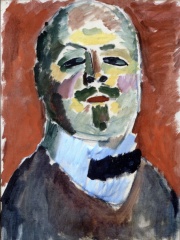
5. Alexej von Jawlensky (1864 - 1941)
With an HPI of 71.13, Alexej von Jawlensky is the 5th most famous Russian Painter. His biography has been translated into 39 different languages.
Alexej Georgewitsch von Jawlensky (Russian: Алексе́й Гео́ргиевич Явле́нский, romanized: Alekséy Geórgiyevich Yavlénskiy; 13 March 1864 – 15 March 1941), surname also spelt as Yavlensky, was a Russian expressionist painter active in Germany. He was a key member of the New Munich Artist's Association (Neue Künstlervereinigung München), Der Blaue Reiter ("The Blue Rider") group, and later Die Blaue Vier ("The Blue Four").

6. Ivan Kramskoi (1837 - 1887)
With an HPI of 70.86, Ivan Kramskoi is the 6th most famous Russian Painter. His biography has been translated into 56 different languages.
Ivan Nikolayevich Kramskoi (Russian: Иван Николаевич Крамской; 8 June [O.S. 27 May] 1837 – 5 April [O.S. 24 March] 1887) was a Russian Realist painter and art critic. One of the most prominent artisans during Tsar Alexander II's reign, he is remembered as co-founding member and public frontman of the Peredvizhniki movement.

7. Natalia Goncharova (1881 - 1962)
With an HPI of 69.95, Natalia Goncharova is the 7th most famous Russian Painter. Her biography has been translated into 45 different languages.
Natalia Sergeevna Goncharova (Russian: Ната́лья Серге́евна Гончаро́ва, IPA: [nɐˈtalʲjə sʲɪrˈɡʲe(j)ɪvnə ɡənʲtɕɪˈrovə]; 3 July 1881 – 17 October 1962) was a Russian avant-garde artist, painter, costume designer, writer, illustrator, and set designer. Goncharova's lifelong partner was fellow Russian avant-garde artist Mikhail Larionov. She was a founding member of both the Jack of Diamonds (1909–1911), Moscow's first radical independent exhibiting group, the more radical Donkey's Tail (1912–1913), and with Larionov invented Rayonism (1912–1914). She was also a member of the German-based art movement Der Blaue Reiter. Born in Russia, she moved to Paris in 1921 and lived there until her death. Her painting vastly influenced the avant-garde in Russia. Her exhibitions held in Moscow and St Petersburg (1913 and 1914) were the first promoting a "new" artist by an independent gallery. When it came to the pre-revolutionary period in Russia, where decorative painting and icons were a secure profession, her modern approach to rendering icons was both transgressive and problematic. She was one of the leading figures in the avant-garde in Russia and carried this influence with her to Paris.

8. Viktor Vasnetsov (1848 - 1926)
With an HPI of 69.65, Viktor Vasnetsov is the 8th most famous Russian Painter. His biography has been translated into 59 different languages.
Viktor Mikhaylovich Vasnetsov (Russian: Ви́ктор Миха́йлович Васнецо́в; 15 May [O.S. 3 May] 1848 – 23 July 1926) was a Russian painter and draughtsman who specialised in mythological and historical subjects. He is considered a co-founder of Russian folklorist and romantic nationalistic painting, and a key figure in the Russian Revivalist movement.

9. Vasily Vereshchagin (1842 - 1904)
With an HPI of 69.12, Vasily Vereshchagin is the 9th most famous Russian Painter. His biography has been translated into 52 different languages.
Vasily Vasilyevich Vereshchagin (Russian: Васи́лий Васи́льевич Вереща́гин; 26 October 1842 – 13 April 1904) was a Russian painter, war artist, and traveller. The graphic nature of his realist scenes led to many of them never being printed or exhibited to the public.
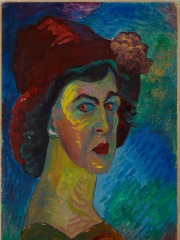
10. Marianne von Werefkin (1860 - 1938)
With an HPI of 68.56, Marianne von Werefkin is the 10th most famous Russian Painter. Her biography has been translated into 32 different languages.
Mariamna Vladimirovna Veryovkina (10 September [O.S. 29 August] 1860 – 6 February 1938), germanified and subsequently known in Western sources as Marianne von Werefkin, was a painter of noble Russian origin, active in Germany and Switzerland during the late Belle Époque and Interwar eras, particularly known for her Expressionist works.
People
Pantheon has 88 people classified as Russian painters born between 1360 and 1988. Of these 88, 7 (7.95%) of them are still alive today. The most famous living Russian painters include Andrei Kolkoutine, Aleksandr Petrov, and Israel Tsvaygenbaum. The most famous deceased Russian painters include Wassily Kandinsky, Andrei Rublev, and Ivan Shishkin. As of April 2024, 2 new Russian painters have been added to Pantheon including Mikhail Evstafiev, and Maria Alyokhina.
Living Russian Painters
Go to all RankingsAndrei Kolkoutine
1957 - Present
HPI: 55.94
Aleksandr Petrov
1957 - Present
HPI: 52.03
Israel Tsvaygenbaum
1961 - Present
HPI: 49.73
Mikhail Evstafiev
1963 - Present
HPI: 46.94
Viktor Lyapkalo
1956 - Present
HPI: 45.77
Maria Alyokhina
1988 - Present
HPI: 41.58
Simon Kozhin
1979 - Present
HPI: 41.19
Deceased Russian Painters
Go to all RankingsWassily Kandinsky
1866 - 1944
HPI: 84.16
Andrei Rublev
1360 - 1428
HPI: 76.37
Ivan Shishkin
1832 - 1898
HPI: 72.55
Nicholas Roerich
1874 - 1947
HPI: 71.42
Alexej von Jawlensky
1864 - 1941
HPI: 71.13
Ivan Kramskoi
1837 - 1887
HPI: 70.86
Natalia Goncharova
1881 - 1962
HPI: 69.95
Viktor Vasnetsov
1848 - 1926
HPI: 69.65
Vasily Vereshchagin
1842 - 1904
HPI: 69.12
Marianne von Werefkin
1860 - 1938
HPI: 68.56
Vasily Perov
1834 - 1882
HPI: 68.28
Lovis Corinth
1858 - 1925
HPI: 67.85
Newly Added Russian Painters (2025)
Go to all RankingsOverlapping Lives
Which Painters were alive at the same time? This visualization shows the lifespans of the 25 most globally memorable Painters since 1700.


